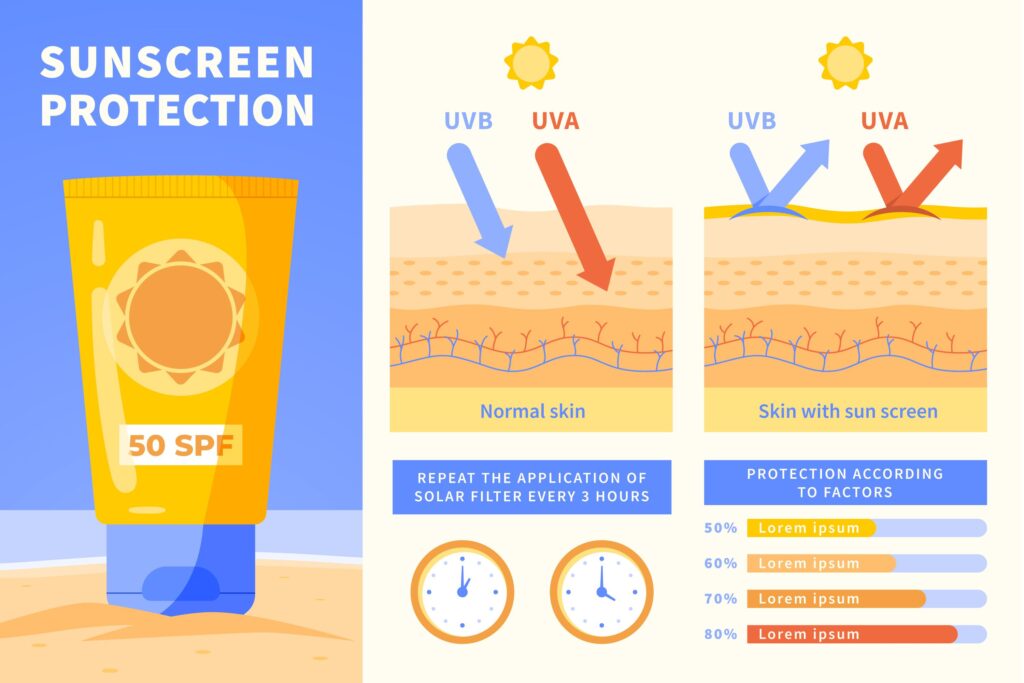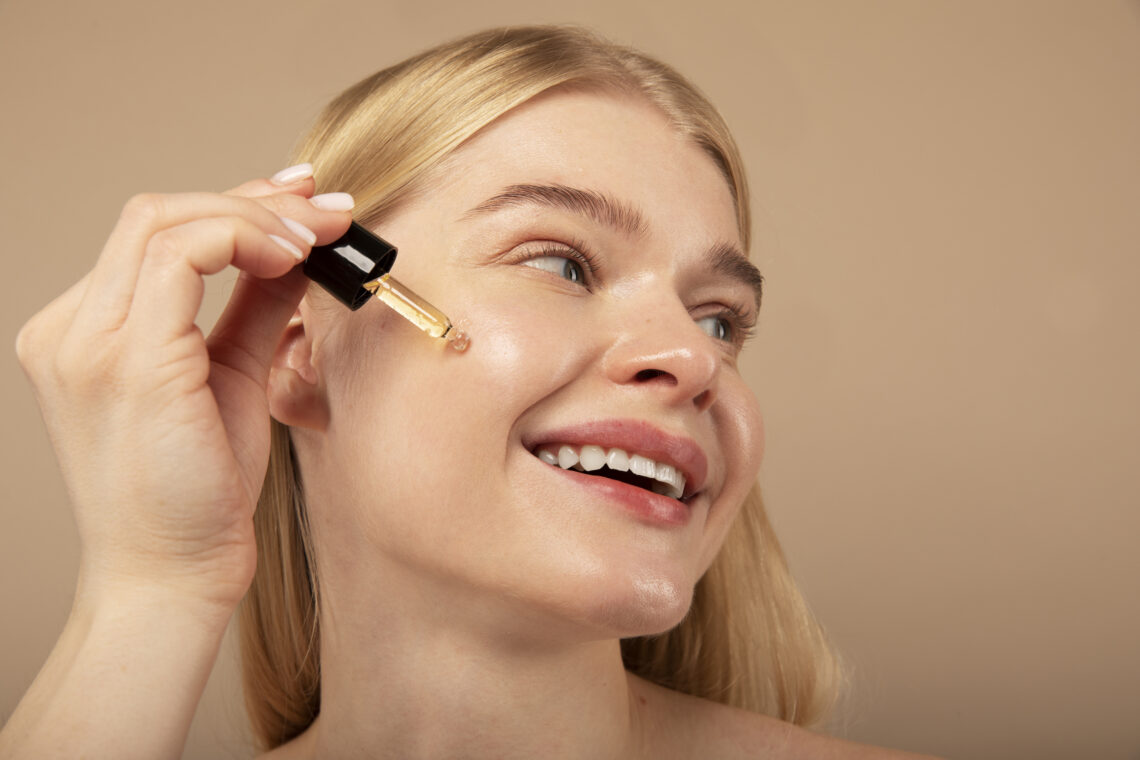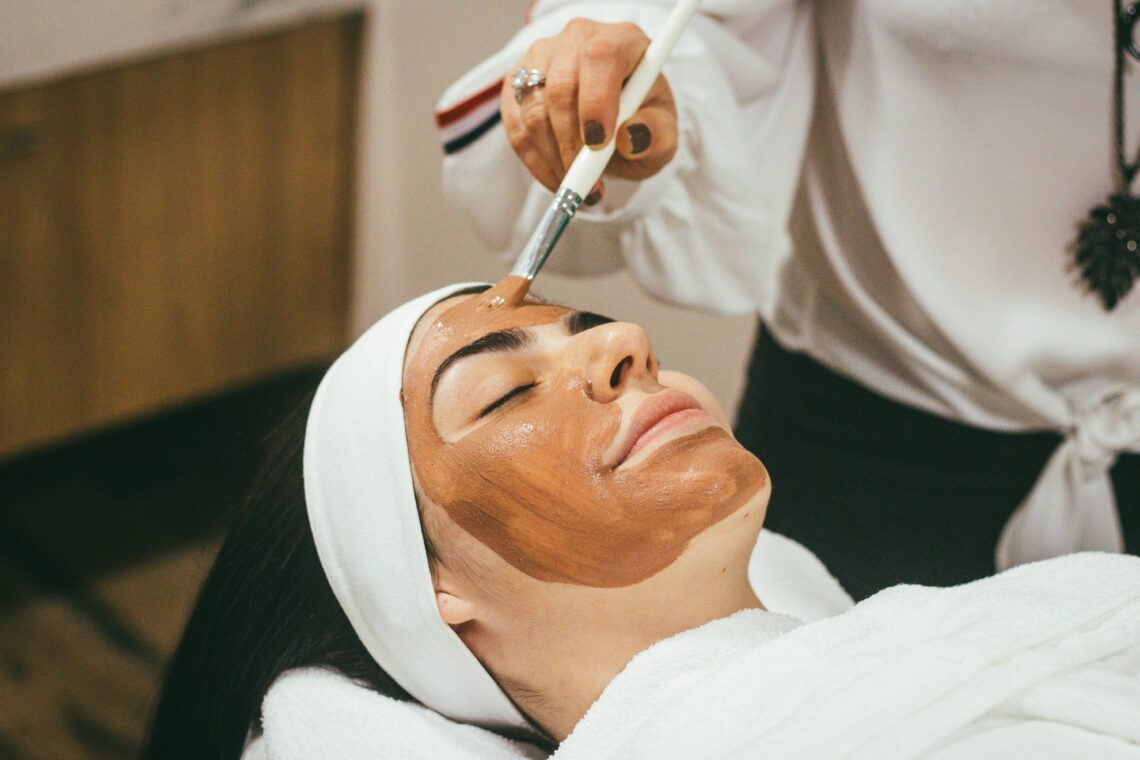Tinted sunscreen for the face has become increasingly popular as it combines the benefits of sun protection with a touch of coverage. However, like any skincare product, there are misconceptions surrounding tinted sunscreen for the face that need to be addressed. In this article, we will debunk these myths and provide tips to help you choose a tinted sunscreen that fits your skin type and tone.
Common Myths about Tinted Sunscreen
1. Tinted sunscreen is not as effective as regular sunscreen
Some people believe that tinted sunscreen may not offer the same level of sun protection as regular sunscreen.
However, this is far from the truth. Tinted sunscreens for the face are formulated with the same active ingredients as regular sunscreens, such as zinc oxide and titanium dioxide, which provide broad-spectrum protection against both UVA and UVB rays.
Tinted sunscreens
- Provides sun protection with light coverage for a natural look.
- Comes in various shades to match different skin tones.
- Can serve as a makeup primer, offering multi-tasking benefits.
- Some have lightweight, non-greasy textures.
Regular sunscreens
- Focuses solely on sun protection without coverage.
- Suitable for all skin tones as it is transparent.
- Versatile and available in various formulations.
- Varies in texture from lightweight to emollient.
When selecting a tinted sunscreen, ensure it has a high SPF rating and offers broad-spectrum protection to safeguard your skin from sun damage.
2. Tinted sunscreen is only suitable for certain skin types or tones
There is a common misconception that tinted sunscreen for the face is limited to specific skin types or tones.
In reality, there are various options available to suit different skin types and tones. Whether you have dry, oily, combination, or sensitive skin or fair skin tone or pale skin tone, you can definitely use tinted sunscreen. When searching for the perfect tinted sunscreen, look for products that specifically mention suitability for pale skin or fair skin on their labels. These formulations are often designed to complement lighter skin tones, providing a natural and flattering coverage.
Learn more about Best Tinted SPF 50 Face Sunscreen Solutions For Pale Skin
Moreover, some tinted sunscreens are created with universal shades that effortlessly blend on all skin tones, including fair and pale ones. These versatile shades adapt to your skin’s undertone, ensuring a seamless match and avoiding any stark contrast between the product and your natural skin color.
3. Tinted sunscreen feels heavy or greasy
Many people avoid using tinted sunscreen for the face due to the misconception that it has a heavy or greasy texture.
However, advancements in formulation have led to the development of lightweight and non-comedogenic tinted sunscreens. These formulations are designed to feel comfortable on the skin, blend easily, and provide a natural finish.
When choosing a tinted sunscreen, look for products specifically labeled as lightweight or non-greasy to ensure a comfortable and breathable feel on your face.
4. Tinted sunscreen does not provide enough coverage
Some individuals believe that tinted sunscreen for the face does not offer adequate coverage for their specific needs.
However, tinted sunscreens are formulated to provide a light to medium coverage that helps even out skin tone, minimise imperfections, and provide a more polished look.
While it may not provide full coverage like a foundation, it can offer a natural and radiant finish. If you require more coverage, consider using a tinted sunscreen as a base and layering it with additional makeup products if needed.
Tips to Choose Tinted Sunscreen

- Assess your skin type and concerns: Determine your skin type (dry, oily, combination, or sensitive) and consider any specific concerns you have, such as acne, hyperpigmentation, or aging. Look for tinted sunscreens that address your specific needs.
- Select an appropriate shade for your skin tone: Choose a tinted sunscreen that matches your skin tone or opt for a universal shade that blends seamlessly. It’s always a good idea to test the shade on your jawline or inner wrist before making a purchase.
- Look for broad-spectrum protection and SPF: Ensure the tinted sunscreen provides broad-spectrum protection against UVA and UVB rays. Look for a product with a minimum SPF of 30 to provide adequate sun protection for your face.
- Read reviews and seek recommendations: Research and read reviews from reputable sources or other users to gather insights about the performance and suitability of different tinted sunscreens. You can also consult dermatologists or skincare professionals for personalized recommendations.
Top Recommended Tinted Sunscreen for Face
- Best value: Altruist Dermatologist Anti Redness and Pigmentation SPF50 Tinted Face Cream
- Best for combination skin: Paula’s Choice Super-Light Daily Wrinkle Defense
- Best for sensitive skin: CeraVe Tinted Sunscreen with SPF 30
- Best for everyday wear: La Roche-Posay Anthelios Tinted Mineral Ultra-Light Fluid Broad Spectrum SPF 50
Tinted sunscreen for the face offers a convenient way to protect your skin from the sun while providing a touch of coverage. By debunking myths and following the tips provided, you can confidently choose a tinted sunscreen that fits your skin type and tone. Remember to prioritise sun protection and embrace the benefits of tinted sunscreen for a healthy and radiant complexion. Your skin will thank you for it!



